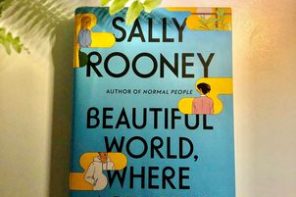“I’m sorry, but there is just no reason to study Shakespeare today. Tell me what you have to gain from studying these stories in such difficult language? The words are archaic. They’re nothing like our writing today! What can you possibly benefit from studying these plays?!”
These were the heated words of my friend, a McGill Faculty of Medicine student, and they stirred self-consciousness and doubt in me. I scrambled to make the case for studying Shakespeare—both the playwright and the course (ENGL 315: Shakespeare). As I begin my final semester of McGill undergrad, this class stands clearly in my mind as one of my favourites, notwithstanding its heavy reading load and accompanying challenges.
My friend’s reluctance to agree to the benefits of studying Shakespeare, and my subsequent frustration, sent me straight to Professor Wes Folkerth’s office hours. Professor Folkerth, a McGill Associate Professor and the Director of Undergraduate Studies, is the instructor for ENGL315 and has published a number of works on the renowned playwright. Given such credentials, Professor Folkerth occurred to me as a qualified authority on the matter. Thus, I directed my friend’s questions and my own newfound concerns to him.
Why read Shakespeare, specifically? Why does Shakespeare stand out to you, in comparison to the other great writers?
Wes Folkerth: One is his influence upon other writers. He has been a tremendously influential writer… Anybody who wants to become a writer can find something in Shakespeare that is going to be something they can steal or be inspired by, or sometimes it’s just his facility with language. There just aren’t that many writers who have such easy facility, that can express themselves so easily… He was able to write so quickly and toss these things out, he didn’t have to go back and edit too much… Language just luxuriates out of him. Language is arguably the most important tool that humans have developed, probably more important than the wheel. If you’re someone who wants to obtain that kind of skill, he is someone to measure yourself against.
One thing that deters students from reading Shakespeare is the difficulty of reading the language. Do you think students would gain the same value by reading versions of the plays in modern-day English, as opposed to Elizabethan English?
WF: I remember seeing a film called “The Harder They Fall,” set in Jamaica. For the first half hour of the film, the accents that characters spoke in were so thick that there were English subtitles. And then after about thirty minutes, you don’t realize it but the subtitles go away, because you don’t need them anymore, because you’ve been attuned to the language. I think the same thing happens with Shakespeare too. As people start to read more and more of it, they realize [his language] is pretty similar. Some of the ways that he speaks, phrases that he uses, have just become part of the fabric in the way that we talk anyway, so sometimes reading Shakespeare gives you a chance to rediscover how you’re speaking.
Would you advise someone totally resistant to the Elizabethan language to read a modernized version of the plays, with easy-access language?
WF: There are lots of filmic versions of the plays that are adapted to modern context, so yeah. The language is an important part for him especially, I think, and for people who are literarily inclined, but apart from his skill as a poet, a worker with words, the other thing that is unique and worthy of appreciation is his ability to pick stories. He picks stories that are compelling. A lot of the plots that he works with are not something that he made up; they are something that he has borrowed from someone else and he is adding things to or shading things in different ways and trying to make them appeal to his contemporary audience. If you have that kind of an ear for a good story, there is something built into the fascination that people might have for your work. [Shakespeare’s] stories can be told in different languages and different cultural contexts and they have been. Wherever you have people living in close proximity where there are profound differences in culture, you can set Romeo and Juliet there.
In this day and age, with environmental crises and issues of social justice, why should we be carving out time for Shakespeare?
WF: To frame it that way suggests that time is a resource that there is not enough of. At least in my experience, there is a lot more time than we think we have. There is plenty of opportunity to engage in those forms of awareness and also to look to Shakespeare too. In some instances, he may actually speak to some of these issues that connect with someone’s problems and ideas. There is time for the things that you make time for.
***
After speaking to Professor Folkerth, I began to consider why I had taken ENGL 315 myself, and I started to consider the skills I developed from this course.
While he lived centuries ago, Shakespeare’s contributions have resonated in our culture, impacting modern art and language in ways that individuals often fail to realize. Shakespeare’s plays endure because of his multifaceted characters, whom he imbued with profound woes, complex motivations, charisma, and desperation. While his language might seem challenging to some, Shakespeare is often credited as the originator of many present-day terms and phrases. People frequently and unknowingly quote him. For instance, the phrases “hurry,” “in a pickle,” and “break the ice” all originate from the Bard.
Underlying this question, “Why study Shakespeare?” is the question, “Why study literature?” or rather, “Why study the humanities?” Journalists have acknowledged that as individuals increasingly measure the value of an education according to its perceived practicality in securing a career, fewer students have opted to pursue arts or humanities degrees. Yet I maintain, as others have, that these courses are extremely valuable, not only because they emphasize critical thinking and improved writing skills, but because they expose students to the intricacies and moral conflicts that shape human relationships. As individuals engage in a close analysis of art created throughout time, some of which recount complex characters or figures, they stand to gain an understanding of a wide range of human motivations. Thus, students may grow to understand both themselves and others better. While sometimes labeled a “soft skill,” the ability to empathize undoubtedly enhances one’s ability to connect and build relationships. Moreover, for a student in the Faculty of Medicine, empathy constitutes an essential attribute, one which distinguishes excellent physicians from mediocre ones.
Studying Shakespeare provides one with invaluable empathy skills and fosters an appreciation for great works of literature. If one is looking for an enriching elective this add/drop period, I recommend venturing to the English department and cracking open some of these old but timeless texts.









I would refer you to Harold Bloom for excellent answers to these questions. But in short, in reading and understanding Shakespeare’s plays, we are given a concise and condensed look into the wonderful and strange spectrum of human experience: different types of courage, of fear, of hate, of lament, of hope and love. Ask king Lear about getting old. Ask Richard the third about loathing and being set apart. Ask Rosalind about the strength of love and joy. King Henry and courage. So many characters and so many facets of humanity, we cannot help but learn about ourselves and about other people opening our minds and engendering understanding, love, tolerance, and empathy for ourselves and others.